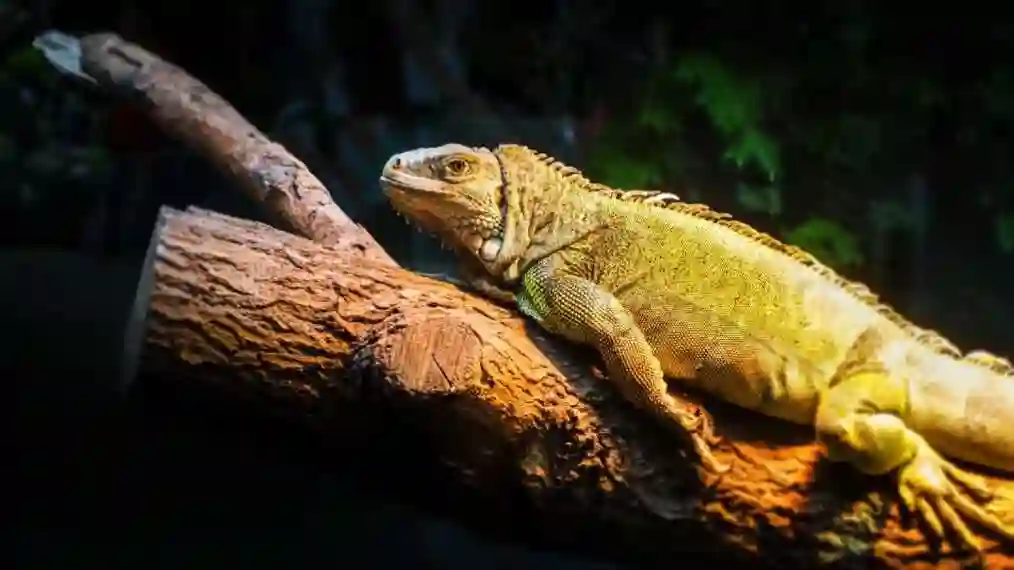Yes, bearded dragons can eat butter worms. Butterworms are a nutritious food source for bearded dragons, as they are high in protein, fat, and essential vitamins and minerals.
It is important to note that butter worms should not be used as the main food source for bearded dragons, as they are high in fat.
They should be offered as a supplement to other feeder insects, such as crickets, mealworms, and super worms.
Baby bearded dragons should only be given butter worms as an occasional treat, as they require a more balanced diet with less fat.
Nutritional Benefits Of Butterworms For Bearded Dragons

Butterworms have gained popularity as a potential food source for these reptiles due to their high nutritional value.
There are some important feeding tips to keep in mind before adding them to your pet’s diet.
Firstly, it is crucial to ensure that the butter worms are sourced from reliable and reputable sources to avoid health concerns.
It is essential to provide an ideal portion size suitable for your bearded dragon’s age and size to maintain its overall health and well-being.
When considering the nutritional value of butter worms, they are rich in protein, fat, calcium, phosphorus, and other essential vitamins and minerals required by bearded dragons.
Overfeeding or providing them as the sole food source can lead to obesity or nutrient deficiencies.
Are There Any Risks Associated With Feeding Butterworms To Bearded Dragons
Feeding bearded dragons with butterworts is a common practice among pet owners.
However, there are certain risks associated with this feeding method that need to be considered before offering these insects to pets.
- Storing requirements:
Butterworms should be stored at temperatures between 40 and 50 degrees Fahrenheit in order to maintain their freshness and prevent mold growth. It is also important to keep them in a dark and dry place to discourage bacterial growth.
- Offering methods:
Butterworms can be offered as a treat or as part of the regular diet of bearded dragons. It is recommended to offer them once or twice per week, depending on the nutritional needs of the pet.
- Buying considerations:
When buying butter worms, it is important to ensure that they come from a reputable supplier that follows food hygiene standards. This will minimize the risk of contamination and disease transmission.
It is essential to handle them carefully and use clean utensils when feeding them to bearded dragons.
This will prevent any potential harm or illness caused by bacteria or parasites that may reside on the insects.
How Often Should Butterworms Be Offered To Bearded Dragons?
While feeding butter worms to bearded dragons may provide some nutritional benefits, there are potential risks associated with their consumption.
It is important to note that butterworts are high in fat, which can contribute to obesity and other health issues in bearded dragons if offered too frequently.
It is recommended that butter worms be offered as an occasional treat rather than a staple food item.
It is also important to consider the levels of digestive enzymes present in a bearded dragon’s system, as certain prey items may require higher levels of enzymes for proper digestion.
When handling butter worms, it is important to practice safe hygiene practices and ensure that they are obtained from a reputable source.
When considering feeding bearded dragons butter worms, it is important to select healthy and fresh worms.
Avoid feeding them dead or dried butter worms as they may result in health complications.
Prevent contamination by storing the worms in a clean container and providing a clean feeding dish for your pet.
It is recommended to incorporate butterworms as part of a varied diet for bearded dragons. This will help provide essential nutrients and prevent boredom with their food options.
How To Store Butterworms Properly For Your Beardie?
Butterworms can be a great addition to your beardie’s diet, but it is important to store them properly to ensure they stay fresh and safe for consumption.
To store butter worms properly, start by cleaning the container that you plan on using to house them.
Use sanitizing tools such as soap and water, vinegar, or bleach to clean the container thoroughly before adding the worms.
It is also important to make sure that the container is safe for your dragon and does not have any sharp edges or corners that could cause injury.
When it comes to portion sizes, it is recommended that you feed your beardie no more than 2-3 worms per feeding session.
Make sure to keep an eye on the temperature control of the container.
Butterworms should be kept at around 50-60°F (10-15°C) for optimal storage conditions.
